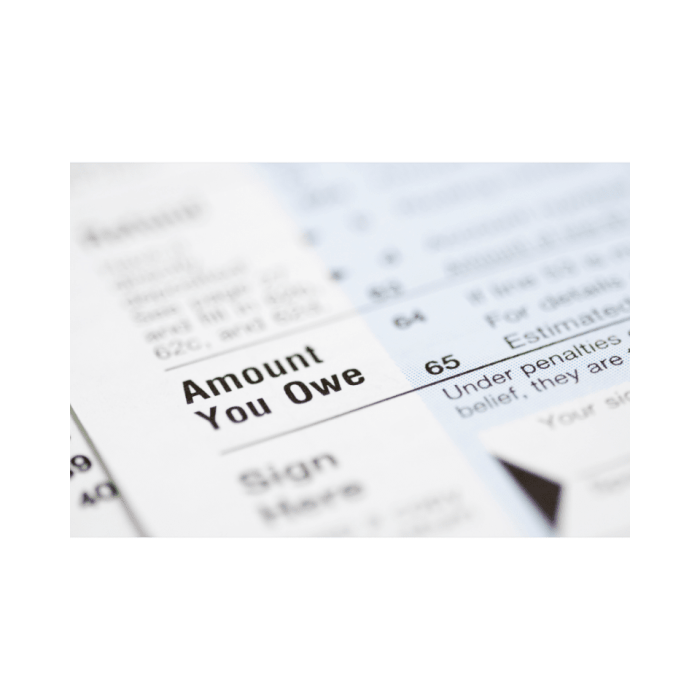Are CDD fees tax deductible? This comprehensive guide delves into the intricacies of Community Development District (CDD) fees and their tax implications, providing a clear understanding of the rules and exceptions that govern their deductibility.
CDD fees are often levied by local governments to fund infrastructure and amenities within a specific development. Understanding their tax treatment is crucial for homeowners and investors alike.
Definition of Community Development District (CDD) Fees
Community Development District (CDD) fees are special assessments levied by local governments to fund infrastructure and amenities within a specific geographic area. These fees are typically used to finance projects that benefit the entire community, such as roads, parks, recreation facilities, and water and sewer systems.
CDD fees are typically assessed on a per-parcel basis, and the amount of the fee is determined by the size and location of the property. In some cases, CDD fees may also be assessed on a per-unit basis, such as for condominiums or townhouses.
Purpose of CDD Fees
The primary purpose of CDD fees is to fund infrastructure and amenities that would not otherwise be available to the community. These fees allow local governments to finance projects that are too large or expensive to be funded through traditional property taxes.
CDD fees can also be used to fund ongoing maintenance and operating costs for community amenities, such as parks and recreation facilities.
Examples of Typical Services Covered by CDD Fees
- Roads and sidewalks
- Parks and recreation facilities
- Water and sewer systems
- Street lighting
- Drainage systems
- Community centers
- Libraries
Tax Deductibility of CDD Fees: Are Cdd Fees Tax Deductible

CDD fees are generally not tax-deductible at the federal level. This means that you cannot deduct them from your taxable income when calculating your federal income taxes.
Specific Tax Code Sections
The tax code sections that govern the deductibility of CDD fees are:
- Internal Revenue Code (IRC) Section 164(a): This section allows for the deduction of state and local taxes, but CDD fees are not considered state or local taxes.
- IRC Section 212: This section allows for the deduction of expenses related to the production of income, but CDD fees are not considered expenses related to the production of income.
Exceptions to the General Rule

The general rule that CDD fees are not tax-deductible has some exceptions. These exceptions include:
Capital Improvements
CDD fees used to pay for capital improvements are tax-deductible. Capital improvements are defined as permanent improvements to property that increase its value. Examples of capital improvements include adding a new room, remodeling a kitchen, or installing a new roof.
Assessments for Maintenance and Repair
CDD fees used to pay for maintenance and repair of common areas are also tax-deductible. Common areas are areas that are shared by all residents of the community, such as pools, parks, and clubhouses. Examples of maintenance and repair expenses include mowing the lawn, repairing the pool, and painting the clubhouse.
Regarding the tax deductibility of CDD fees, it’s worth noting that populism has been on the rise lately. Check out this quiz to test your knowledge. Coming back to the topic of CDD fees, their tax treatment can vary depending on specific circumstances.
It’s always advisable to consult a tax professional for personalized guidance.
Documentation and Record-Keeping

Proper documentation is crucial for tax purposes. It provides evidence of your expenses and supports your claims for deductions. Without proper documentation, you may not be able to deduct certain expenses or may have to pay additional taxes.
The types of records you should keep include receipts, invoices, bank statements, credit card statements, and canceled checks. You should also keep a record of any other expenses that you claim on your tax return, such as mileage, meals, and entertainment.
Methods for Organizing and Storing Records
There are a number of different ways to organize and store your records. You can use a filing cabinet, a shoebox, or a digital storage system. The important thing is to have a system that works for you and that you can easily access.
- Filing Cabinet:A filing cabinet is a traditional way to store records. It is a good option if you have a lot of paper records.
- Shoebox:A shoebox is a simple and inexpensive way to store records. It is a good option if you do not have a lot of records or if you are on a budget.
- Digital Storage System:A digital storage system is a convenient way to store records. It is a good option if you want to be able to access your records from anywhere.
Reporting CDD Fees on Tax Returns
CDD fees are generally reported as part of your property taxes on your federal and state tax returns. On your federal tax return, you will report CDD fees on Schedule A, Item 6State and local income taxes. On your state tax return, you will typically report CDD fees on the appropriate line for property taxes.It
is important to note that some states do not allow for the deduction of CDD fees on state tax returns. To determine if your state allows for the deduction of CDD fees, you should consult with a tax professional or refer to your state’s tax laws.
Impact of CDD Fees on Property Values

The presence of CDD fees can have a significant impact on property values. In some cases, CDD fees can increase property values by providing access to amenities and infrastructure that enhance the desirability of a community. For example, a CDD-funded park or recreation center can make a neighborhood more attractive to potential buyers, leading to higher home prices.
However, in other cases, CDD fees can decrease property values by increasing the cost of homeownership. This is especially true in areas where CDD fees are high or where the benefits of the CDD are not perceived as being worth the cost.
For example, a CDD-funded golf course may not be seen as a valuable amenity by all potential buyers, and the associated fees could make homes in the area less affordable.
Real Estate Expert Insights, Are cdd fees tax deductible
Real estate experts generally agree that the impact of CDD fees on property values is complex and varies depending on a number of factors, including the specific location, the amenities offered by the CDD, and the overall market conditions. However, some experts believe that CDD fees can have a positive impact on property values in the long run, as they can help to improve the quality of life in a community and make it more desirable to potential buyers.
Market Data
Market data also suggests that CDD fees can have a significant impact on property values. A study by the National Association of Realtors (NAR) found that homes in CDD communities sold for an average of 3% more than comparable homes in non-CDD communities.
However, the study also found that CDD fees can reduce the affordability of homes, especially for first-time buyers.
User Queries
Can all CDD fees be deducted from taxes?
No, only certain types of CDD fees, such as those used for maintenance and repair, are tax-deductible.
How should CDD fees be reported on tax returns?
CDD fees should be reported on Schedule A of federal tax returns, under the category of “State and Local Income Taxes.”
Can CDD fees affect property values?
Yes, CDD fees can potentially affect property values, both positively and negatively, depending on the perceived value of the amenities and services provided.